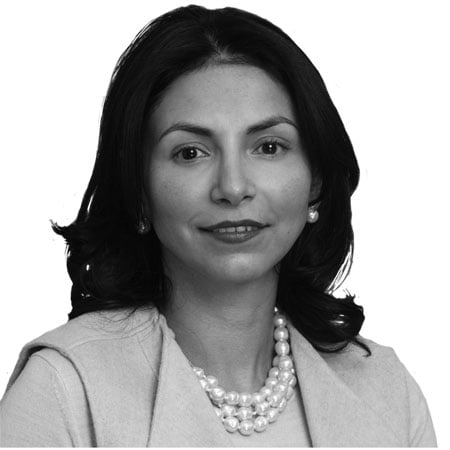How would you describe Willkie’s Latin America practice?
Built upon the foundation of our firm-wide culture, Willkie’s Latin American practice is known by clients for its pragmatic approach to the practice of law, one that puts the client first and forms the basis for longstanding relationships. Our lawyers are admitted throughout Latin America, fluent or proficient in Spanish and/or Portuguese, and have significant experience working on a variety of matters in Brazil, Mexico, Argentina, Colombia, Chile, Peru, Venezuela, and Ecuador.
With highly specialised teams possessing unique and diverse backgrounds, experience, and skills, we have significant knowledge of the realities, players, and best practices for doing business successfully in Latin America. We are well-placed to advise Latin American clients seeking counsel on complex transactions around the world. Our ability to negotiate and close deals, coupled with deep respect for and significant knowledge of a region’s particular rules and regulations, financial and political regimes, and customs and culture, ensures that clients seeking to conduct cross-border business in Latin America obtain the maximum benefit from our vast experience.
What’s a recent change you’ve made in the group that will benefit clients?
In March 2019, Maria Isabel Nieto joined Willkie as our new director of Latin America strategy, reinforcing our commitment to the region and the development of governmental and market practices. Maria Isabel has served the public sector in high-ranking positions under three different Colombian presidents – as senior presidential advisor, diplomat, and Under Secretary of Interior. Admitted to the Bar in Colombia, she has also worked with leading companies and multinationals in the private sector.
What challenges have you faced as a lawyer and in your practice area?
I feel fortunate to have worked at Willkie since beginning my career. It is an environment in which I had and have full support and encouragement from the firm – to lead our Latin American practice, and to excel as an attorney.
The M&A world is tough, and more so for a women of colour, but I love challenges. I’d like to see more women lawyers, bankers, CEO, CFOs, and dealmakers in the M&A and private equity fields. At Willkie, we are fully committed to diversity and supporting women and lawyers of colour to excel and be successful.
What have you found is the best way to retain female attorney talent – both at partner and associate levels?
It’s crucial to be honest about the challenges in the field and also actively support talent. I feel fully responsible to support and mentor other women at Willkie in my day-to-day work with our associates, through our foreign associate programme, and outside Willkie through some of the non-profit organisations I support.
In my discussions with other women, I try to be open and share my experiences, both the challenges and successes. I regularly speak about diversity at conferences organised by law firms in Latin America, companies and organisations such as the International Bar Association and The Legal 500.
I believe I have a responsibility to generate and be an integral part of initiatives and efforts to further encourage diversity. This is why I believe, for example, that The Legal 500’s Women in Law project is a great forum to share experiences, and recognise in-house lawyers who are working hard to transform the industry in the region.
Most importantly, on a personal level, I try to be a good role model and mentor for my daughter Valentina, to prepare her for leadership roles.
Do you still see barriers to women progressing in the legal industry?
Despite efforts industrywide, gender bias is still generating significant disparities for women who continue to face barriers in hiring, assignments, promotions, and compensation. Reports on this matter still show that women and people of colour may feel they are held to a higher standard than men.
In addition to bias and ‘machismo’ in the profession and in particular in Latin America, the barriers women place on ourselves add to the challenge. For example – the guilt we feel if we want to be successful and also have a family life, the struggle in fighting bias and finding work-life balance, understanding that it is okay to be driven and successful, and the desire to make partner, and yes, have a life outside work.
Surprisingly, I have come across women in law who believe that taking parental leave will negatively impact their career, even though this is changing across the profession. Willkie recently promoted a female associate to partner while she was on maternity leave, which I think sends an important message.
How have you used your leadership role to promote diversity and inclusion?
As a woman of colour practising corporate law, I hope that shows other women that if I can do it, they can too. I’m proud to be a part of the talented and diverse team of women and men at Willkie who respect and value each other’s opinions, each contributing a unique perspective.
How has your role/involvement in client-facing work changed since becoming a practice head?
Being client-facing is key in Latin America and our philosophy is to be close to our clients, so in that regard, my role hasn’t changed – it has been reinforced. Maria Isabel also plays an important role in our client relationships.
What advice would you give to the next generation of would-be partners ready to rise through the ranks?
Be yourself. Embrace the things that make you different – including your gender and colour. Seek out mentors, sponsors, and supporters with diverse perspectives and experiences from yours. They will help you view things differently, challenge you to improve, and ultimately help you to succeed.
